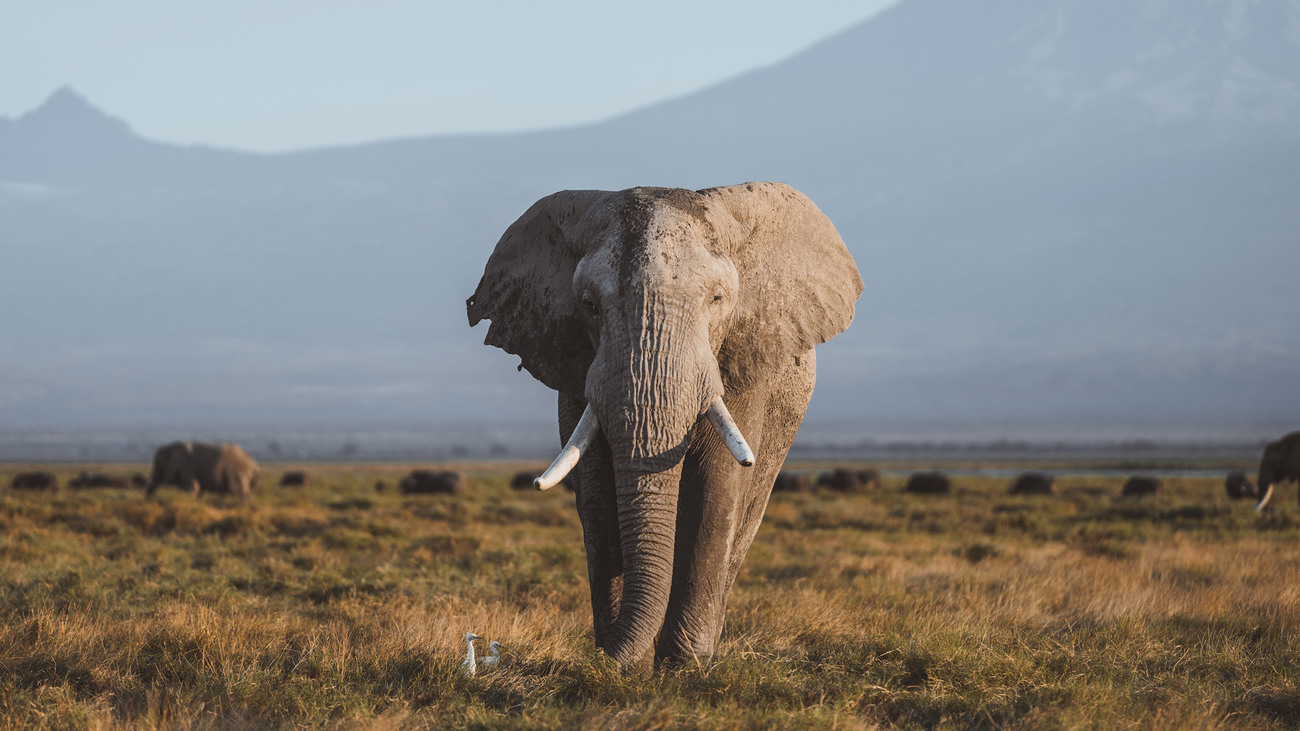Amboseli-Tsavo-Kilimanjaro Landscape
We are giving elephants room to roamifaw response to CITES MIKE analysis of elephant poaching trends
ifaw response to CITES MIKE analysis of elephant poaching trends

New data released this week indicates a continuing downward trend in elephant poaching in Africa. IFAW has welcomed the latest figures as encouraging, while warning there is still much to be done to protect elephant populations decimated by decades of poaching, in addition to other human-made threats.
Analysis of latest figures from the Convention on International Trade in Endangered Species (CITES) MIKE (Monitoring of Illegal Killing of Elephants) shows 2020 figures for elephant poaching have reduced continent-wide in Africa, although with regional variation.
The data indicates the downward trends in poaching in Southern and Eastern Africa are continuing as well as showing encouraging signs of the beginning of a downward trend in Central Africa, a region that has been plagued by poaching in recent decades. Uncertainty in data makes it difficult to demonstrate trends in West Africa.
Matt Collis, IFAW Deputy Vice President, Conservation, said: “While there are limits to the data, any signs of a reduction in the numbers of poached elephants is encouraging but there is still much work to do. Even with a decrease in poaching, elephants continue to face many other threats in addition to this; in particular human wildlife conflict as habitats shrink and human populations expand into more land.
“Therefore, it is even more important that we do all we can to protect elephants in the wild and end the ivory trade. This is vital if we are to protect elephants for future generations.”
Calculating elephant populations
The MIKE program uses data gathered by ranger patrols in a limited number of sites across elephant range states to monitor trends in poaching levels based on the Proportion of Illegally Killed Elephants (PIKE) index. This is calculated annually using the number of illegally killed elephants found in MIKE sites divided by the total number of elephant carcasses found, (including elephants illegally killed, elephants that died of natural causes, management-related deaths and carcasses for which the cause of death could not be established). The overall 2020 PIKE estimate for Africa is the lowest since 2003.
IFAW urges decision-makers to put nature at the heart of climate action. Elephants play a key role in nurturing and protecting the natural environment, from seed dispersal to opening gaps in the forest canopy and enabling trees to thrive and store more carbon.
Related content
Our work can’t get done without you. Please give what you can to help animals thrive.